Relationship Marketing: A Comprehensive Guide
It’s no secret that successful marketing requires a good understanding of your customers. After all, you can’t create content or design campaigns that appeal to your target audience if you don’t know who they are. But what about going beyond just understanding who they are? What about building relationships with them?
In this comprehensive guide, I’ll discuss everything you need to know about relationship marketing: from understanding how it differs from the usual marketing, to measuring the success of your campaign
What is relationship marketing?
Customer relationship marketing is a long-term strategy that cultivates closer relationships with customers to ensure their satisfaction and loyalty. Building strong relationships is the focus of this marketing strategy, not short-term wins or one-time sales transactions.

Usual marketing tactics aim to acquire leads and convert them into customers. Relationship marketing comes into play after those customers have made a purchase. This is when businesses work to establish a long-term relationship with the customer, in order to encourage repeat business.
By providing excellent customer service and creating a positive customer experience, businesses can increase the likelihood of a customer returning in the future.
Companies using relationship marketing
Almost all successful businesses use relationship marketing in one form or another. However, the most notable examples are those that have built their entire business model around it, such as these examples below.
Mercury Drug
Mercury Drug is the leading drugstore chain in the Philippines, and they understand customer loyalty very well as seen in their programs (they launched their Gamot Padala back in 1999). How Mercury Drug practices relationship marketing is seen in two remarkable initiatives: their exclusive Coupon Calendar for their loyal customers that was launched back in 1998, and the famous Suki (which translates to patron or regular customer) Card that was launched in 2000.
With the Suki Card, customers earn points for every purchase, which they can use as payment at Mercury Drug stores. Believe me when I say that everyone and their mother has a Suki Card.
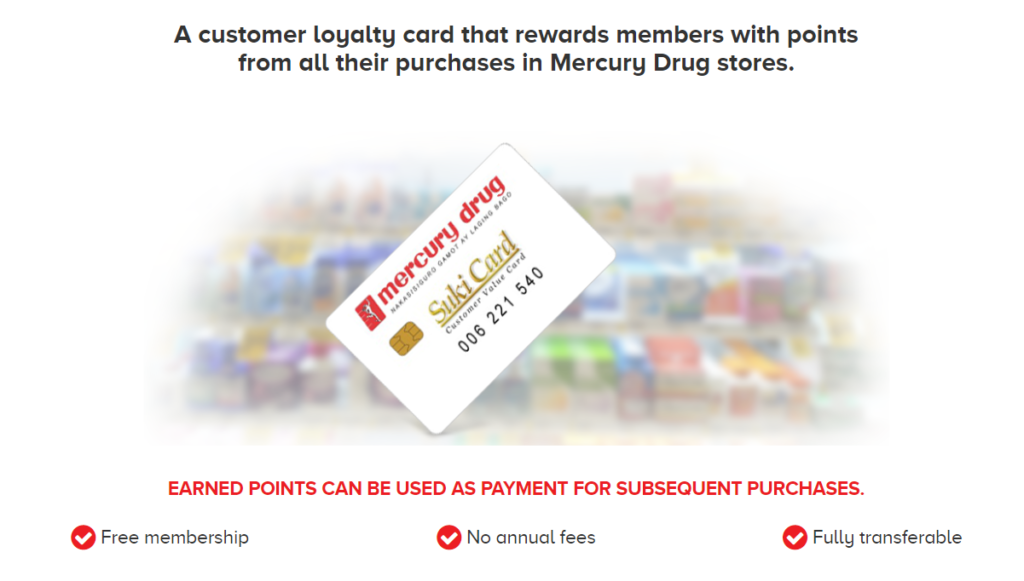
The program has been a massive success, as it not only increases customer loyalty, but also encourages them to recommend Mercury Drug to their friends and family.
Netflix
Would you believe me if I had told you that there is a journal article (yes, an academic paper!) on Netflix’s relationship marketing? Netflix is a prime example of how relationship marketing can be used to create brand loyalty.
“This company shows a system capable of identifying the needs and habits of viewers and a continuous effort to make it easier for them to view their productions, together with a highly effective relationship marketing system at a low cost, based fundamentally on two-way communication through social networks, with an appropriate tone to generate the most virality.”
Simply put, Netflix created a system that focused on personalization (understanding their viewers) and easy engagement through social media. I mean…
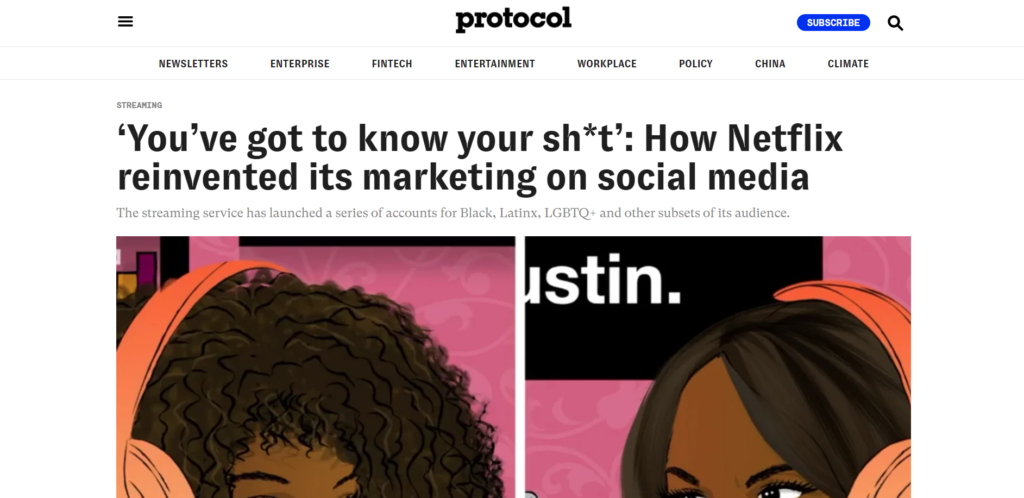
Nike
Nike is one of the most successful companies in the world, and a large part of their success can be attributed to their relationship marketing strategy. Nike’s target market is athletes, and the company uses a variety of channels to reach them, including social media, sponsorships, and events.

They have also developed a strong brand identity (it’s virtually impossible to not recognize their logo and slogan), which further strengthens their relationships with consumers. Nike’s strategy has allowed the company to create a community of athletes who are loyal to the brand and its products. This loyalty has been a major driver of Nike’s growth and success.
Paralives Studio

I have to give a shout-out to this indie studio. Paralives is an up-and-coming dollhouse simulation that is set to compete with the Sims. Yes, that Sims from video game company giant, Electronic Arts.
Alex Massé, a video game developer, and his small team are the ones creating this game, and their Patreon has raised $39,628.57 to hire more people to work on the game.

Perks include being part of their Discord community, getting named in the credits, being able to name “Townies” and pets, access to work in progress, access to the soundtrack upon game release, getting recreated in the game, and more.
As you can see, their patrons not only get to engage with the creators directly, but they become part of the process. The game becomes theirs. Guess how many patrons they have so far:
The benefits of relationship marketing for businesses
There are a number of benefits to businesses when it comes to relationship marketing. Here are some key points:
Increased customer loyalty and satisfaction
Customer loyalty is something that all businesses strive for. After all, it costs much less to keep an existing customer than it does to acquire a new one. According to Invesp, it costs as much as 5x more to acquire new customers than to retain them, while Bain & Company argues that a 5% increase in customer retention can increase your profits by as much as 25%.

That’s where relationship marketing comes in. Relationship marketing is all about creating customer loyalty through satisfied customers who are more likely to return in the future. By creating long-term relationships with customers, businesses can increase customer loyalty and customer lifetime value. In other words, happy customers mean repeat business. And that’s good for everyone involved.
Improved word-of-mouth marketing
Word-of-mouth marketing is one of the most powerful marketing tools available to businesses. When customers have a good relationship with a business, they are more likely to tell their friends and family about their positive experiences. This word-of-mouth marketing can be incredibly valuable, as it helps to create a good reputation for the business and can generate new customers.
Furthermore, customers who feel valued and appreciated are more likely to remain loyal to the business and continue to make purchases in the future. Therefore, creating a good relationship with customers is essential for businesses that want to improve their word-of-mouth marketing.
More engaged and vocal customers online
Engaged and vocal customers are vital for any business. Not only are they more likely to make repeat purchases, but they can also act as brand ambassadors, helping to spread the word about your products or services. In today’s digital age, this is more important than ever.
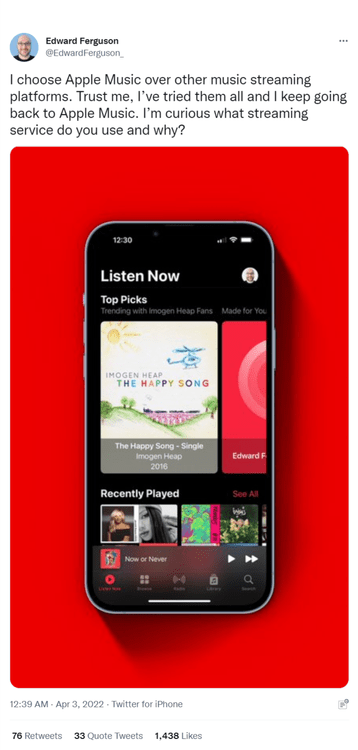
Social media and online review sites have given customers a powerful platform to share their opinions, and businesses that have a strong base of loyal customers are more likely to reap the benefits in terms of increased exposure and sales.
Less need for traditional advertising
Traditional advertising focuses on generating sales, which is important yet time-consuming and expensive—especially if the brand has no strategy to have loyal customers instead of one-time buyers.
A customer who feels a strong connection to a brand is less likely to switch to a competitor, even if that competitor is offering a lower price. In addition, happy customers are often willing to tell their friends and family about their positive experiences (AKA word-of-mouth advertising).
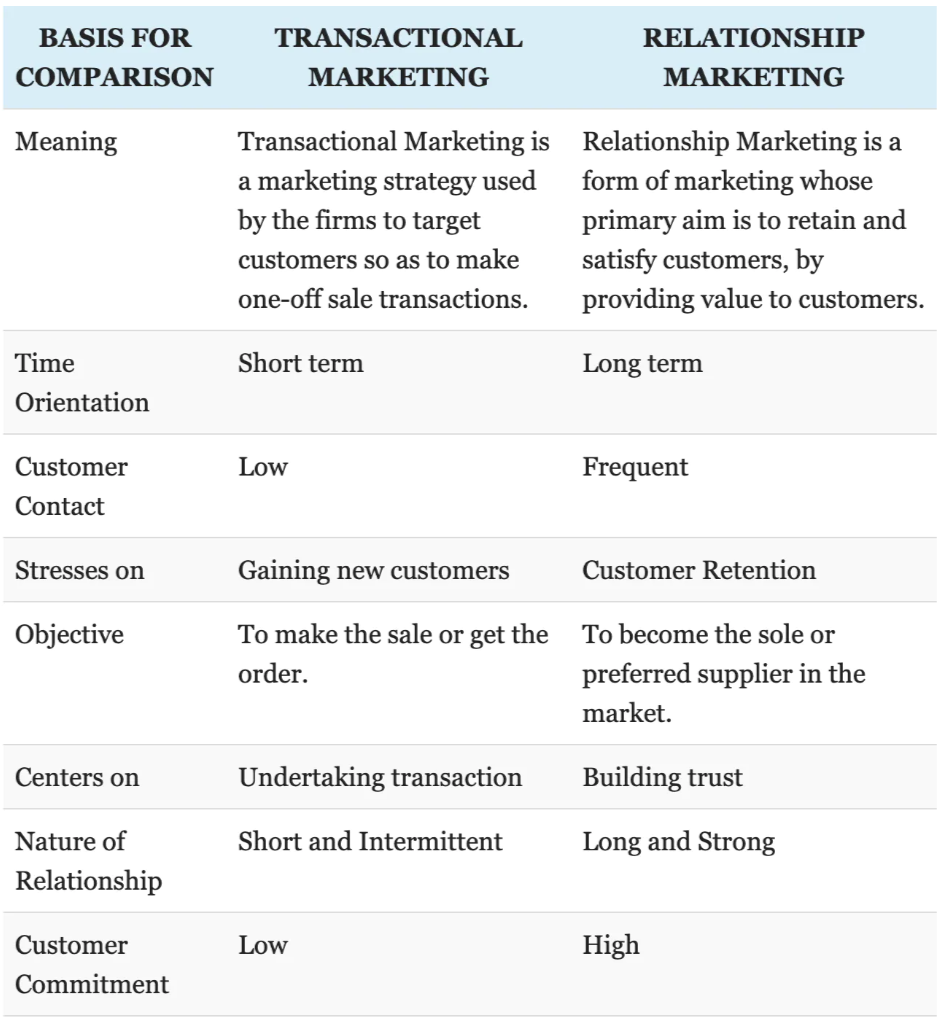
Source: Meltwater
Higher conversion rates and return on investment (ROI)
One of the main benefits of relationship marketing is that it can lead to higher conversion rates. As we have tackled earlier, customers who have an established relationship with a brand are more likely to repeat their purchase. In addition, they are also more likely to recommend the brand to others. As a result, businesses that focus on relationship marketing can see a significant increase in their conversion rates.
Another key benefit of relationship marketing is that it can lead to a higher return on investment. This is because businesses are able to spend less money on acquiring new customers, and instead focus on nurturing existing relationships. As a result, they are able to see a greater ROI from their marketing efforts.
Improved brand reputation
Brand reputation is the estimation in which the brand is held by the general public. It is determined by the unique experiences and interactions that customers have had with the brand, as well as word-of-mouth reviews from friends and family.
One brand that infamously tried to save itself from reputation damage and failed is none other than Meta.
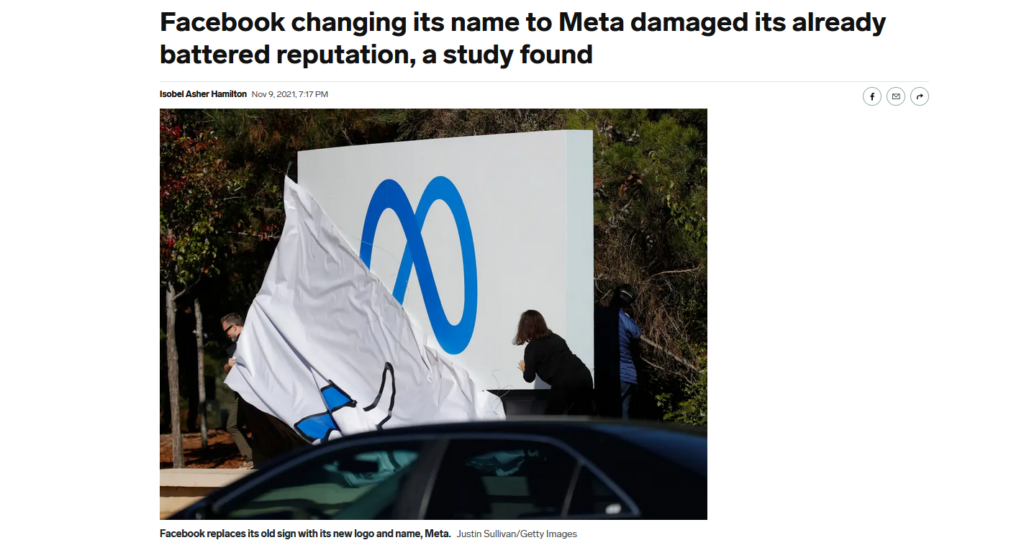
Source: Insider
A strong brand reputation is essential for any business that wants to be successful in the long-term. After all, customers are more likely to trust and recommend a brand that they perceive to be reliable and trustworthy. By building strong relationships with customers, businesses can create a favorable brand reputation that will result in improved sales and profitability.
These are just a few of the advantages that relationship marketing can bring to a business. Ultimately, it leads to more satisfied customers who are more likely to stick around and recommend your brand to others.
The benefits of relationship marketing for consumers
Relationship marketing can also bring a number of benefits to consumers. Here are some key points:
Improved customer service
In the past, businesses have relied on transactional marketing to keep customers happy. However, this approach is no longer enough. Today, customers expect more than just a good product or service. They want to feel valued and appreciated.
Since relationship marketing is customer-centered, this means that good excellent customer service is one of its tenets. Good customer service is essential for any business that wants to retain its customers and attract new ones. Satisfied customers are more likely to return in the future, and they may also recommend the business to their friends and family.
Here at SEO Hacker for example, we go above and beyond in serving our partners’ needs. Since we value them as partners in growth and not just as paying clients, we ensure that whatever concerns they may have are immediately addressed and that we don’t bill every single work we do for them. For us, that is what it means to do customer service.
More personalized experiences
In relationship marketing, you create personalized customer experiences that foster a sense of connection and loyalty. There are many ways to create personalized experiences, but some common methods include using customer data to customize messages and tailoring content to individual interests. This makes customers feel valued and understood.
Greater access to exclusive deals and promotions
One of the top benefits repeat customers can get from brands they are loyal to—aside from personalized attention and treatment—is early access to new products, freebies, and exclusive deals.

Many companies offer loyalty programs and other perks to their best customers. For these reasons, customers who participate in relationship marketing can enjoy a number of benefits.
Ability to connect with other customers with similar interests
Lastly, customers benefit from relationship marketing because they get access to brand communities. This benefits them in a number of ways.
First, they are able to interact with other people who have similar interests. This can create a sense of belonging and community that is often lacking in other forms of marketing. Additionally, customers are able to learn more about the product or service from other community members. They can also provide feedback that can help the company improve its offering, which in turn gives them better products or services.
These are just a few of the advantages that relationship marketing can bring to consumers. Ultimately, it leads to more personalized experiences that cater specifically to their needs and desires.
Relationship marketing strategies and tools
Brands should focus on creating loyal customers. These customers should feel connected to the brand, and shouldn’t think twice about recommending it to friends or family. In order to achieve this, brands need to focus on creating a strong emotional connection with their customers.
Create valuable and relevant content
Creating valuable and relevant content is one of the best ways to build a relationship with your customers. By providing them with information that is valuable and relevant to their lives, you show that you understand their needs and are committed to helping them meet their goals.
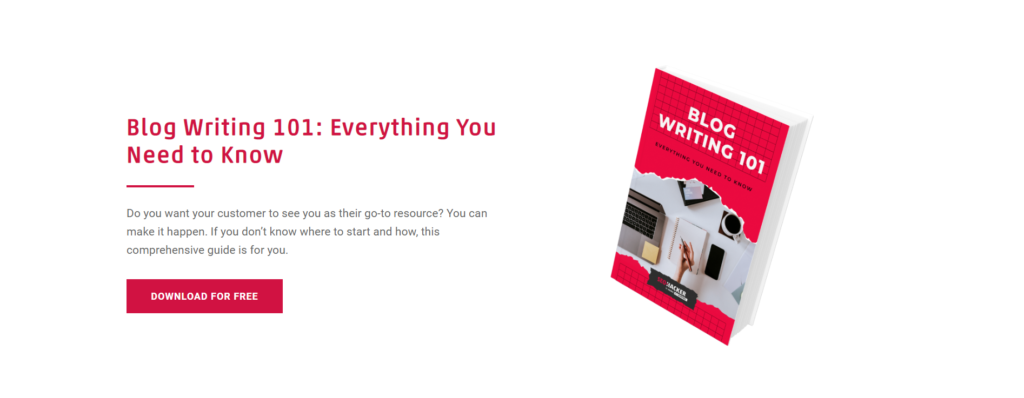
Download: Blog Writing 101: Everything You Need to Know [E-book]
In our case, we create free content and update our subscribers by email. Your valuable and relevant content can be anything from blog posts and articles to video tutorials and infographics. The important thing is that it provides the customer with something that they can use to improve their life or business.
In addition, your content should be updated regularly to ensure that it remains relevant. By producing quality content, you can build trust and credibility with your customers, leading to stronger relationships.
Create a brand community
According to the journal article I referenced earlier,
“In the field of relationship marketing, the brand community has become a decisive aspect that confers value on the organization, given the set of social interactions between the brand and its target audience, and among the customers who meet with a brand with which they feel pleased and identified, to the point of becoming prescribers of it.”
A brand community is a group of people who share a passionate interest in a brand. This can include employees, customers, and even fans. Brand communities can be created intentionally by businesses as a way to practice relationship marketing. This kind of community can provide a sense of belonging for customers and help to create loyalty and brand advocacy.

In order to do this, businesses need to create spaces where community members can interact with each other and the brand. They can take many different forms, from online forums and social media groups to in-person meetups and events. Businesses should also provide content that is relevant and engaging for brand community members. By creating a brand community, businesses can build strong relationships with their customers and create a loyal base of brand advocates.
Create customer loyalty programs
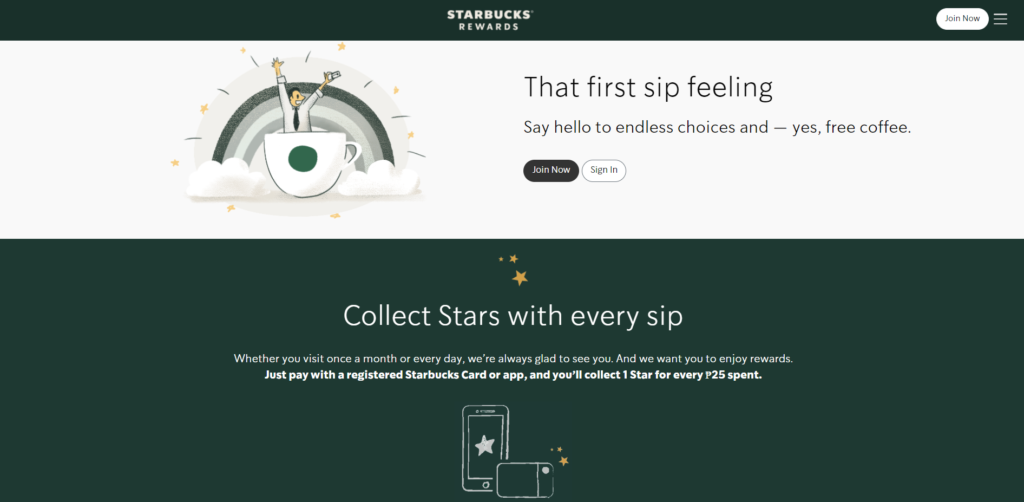
Loyalty programs are another great way to keep customers engaged with your brand. By offering incentives such as points, discounts, or special access, you can encourage customers to stick with you and continue purchasing your products or services.
Use customer feedback for improvement
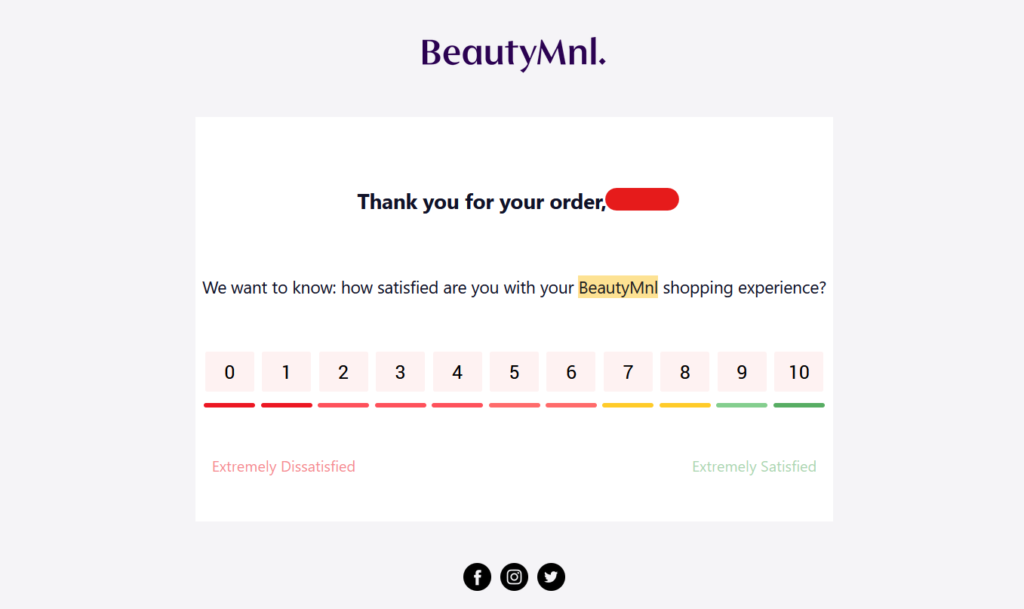
The best way to create satisfied customers is by using their feedback to improve your products or services, and of course—your marketing strategies. Listening to what customers have to say allows you to provide them with the type of experiences they want and makes them more likely to return in the future.
Measure the success of your relationship marketing campaign
Like any other marketing strategy, it’s important to measure the success of your relationship marketing campaign. This can be done by looking at things such as customer loyalty rates, brand awareness, and social media engagement.
Relationship marketing is a great way to connect with customers and create loyal, satisfied customers. By using the strategies and tools listed above, you can implement a successful relationship marketing campaign that will benefit both your business and consumers alike!
How to measure the success of your relationship marketing campaign
When it comes to relationship marketing, there are a few different ways to measure the success of your campaign. Here are a few key metrics to look at:
Track customer loyalty rates
In order to track the effectiveness of your relationship marketing tactics, you need to track customer loyalty rates before and after implementing them. This will give you a clear idea of whether or not your tactics are actually increasing customer loyalty.
There are a number of different ways to track loyalty rates, but one of the most effective is to survey your customers regularly. This can be done online, by phone, or in person. Make sure to ask the same questions each time so that you can track changes in customer loyalty over time.
Measure brand awareness
Brand awareness is the measure of how visible and recognizable a brand is to its target consumers. It’s important for businesses to measure brand awareness before and after implementing relationship marketing tactics, such as customer loyalty programs. By doing so, businesses can gauge the effectiveness of their efforts in terms of increasing brand exposure.
Brand awareness is typically measured through surveys or consumer research questions about a company’s products or services. The results of these surveys can provide valuable insights into how well consumers know and remember a brand, which can in turn help businesses make necessary adjustments to their relationship marketing strategies. In short, measuring brand awareness is an essential part of ensuring that relationship marketing tactics are successful in promoting a business’ products or services.
Monitoring social media engagement levels before and after relationship marketing can help you see if there was an increase in activity surrounding your brand on social media platforms. By tracking how many people are talking about your brand, and how often, you can get a sense of whether relationship marketing is having the desired effect. If you see a spike in social media activity after implementing relationship marketing techniques, it’s safe to say that your efforts are paying off. On the other hand, if engagement levels remain flat or even decline, it may be time to reassess your approach. In any case, monitoring social media engagement is a valuable way to gauge the success of your customer relationship marketing campaigns.
Additionally, monitoring social media engagement can help you identify any potential problems with your campaigns so you can make adjustments accordingly.
Compare sales/conversion rates
Your conversion rate is a measure of how successful your relationship marketing campaign was. To calculate your conversion rate, simply take the number of sales or conversions and divide it by the number of leads or inquiries you received. For example, if you generated 100 leads and had 10 sales, your conversion rate would be 10%. Comparing your conversion rate before and after your campaign can give you a good indication of whether or not your campaign was successful. If you see a significant increase in your conversion rate, it’s safe to say that your campaign was effective. However, if you don’t see much of a change, it may be time to reevaluate your strategy.
Some concerns about relationship marketing
In this section we quickly address two questions about this strategy.
Can businesses still use relationship marketing despite the pandemic?
In the wake of the pandemic, many businesses have been forced to reevaluate their marketing strategies. With in-person interactions being limited, the effectiveness of events and personal meetings is also limited. Even though the pandemic has forced many businesses to adopt a more digital approach, relationship marketing can still be effective. In fact, there are still plenty of ways to build and nurture relationships with clients and customers, even during a pandemic.
Some things you can do for your customers:
- You can reach out via email or social media to keep in touch with your clients.
- You can offer virtual consultations or webinars to provide valuable information and build trust.
- You can be understanding and flexible with customers.
- You can find ways to show genuine concern for their wellbeing.
By being creative and adaptable, businesses can build strong relationships with their customers that will last long after the pandemic is over.
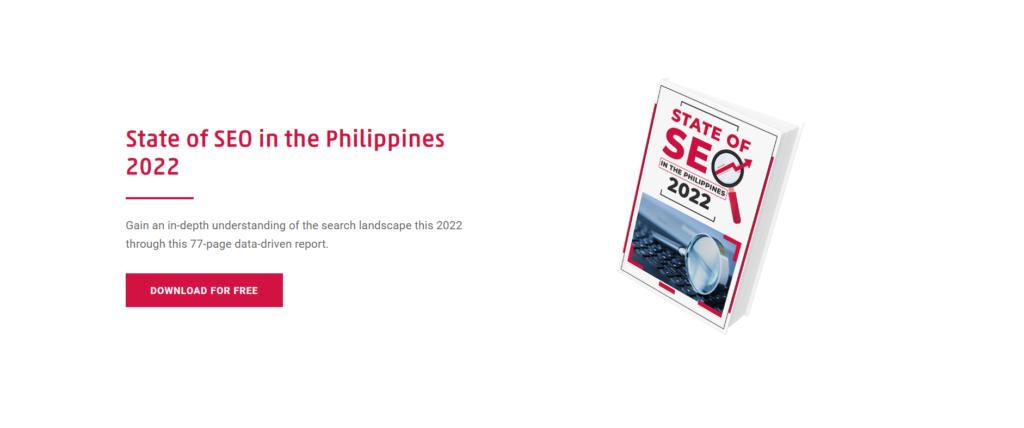
Download: State of SEO in the Philippines 2022 [Report]
Remember, the goal is to create, maintain, and strengthen relationships with customers. This absolutely can be done online.
Can small businesses compete with big brands in relationship marketing?
Small businesses have long been at a disadvantage when it comes to marketing due to the lack of budget and human resources, but the rise of social media has leveled the playing field. Small businesses absolutely can compete with big brands in relationship marketing, and they might even have an edge.
The key is to focus on building genuine relationships with customers and followers—which entails connecting with customers on a personal level, something small businesses are often better at than big brands. Think of mom-and-pop and other local businesses whose owners and staff become your friends.
Big brands, because of their size and priorities, can come across as impersonal and even detached. Small businesses, on the other hand, are usually more nimble and adaptable. They can quickly create custom solutions for each customer, building strong relationships in the process. Go back to the Paralives example.
Some things you can do for your customers:
- Empathizing with your customers and meeting them where they are.
- Highlighting and engaging customers on social media.
- Being authentic and transparent, two qualities that are often lacking in big brands.
- Creating a community where you can engage with them.
When small businesses focus on relationship marketing, they can build the kind of loyalty and trust that big businesses desperately want.
Key takeaway
Relationship marketing is all about building trust and loyalty with your customers. By providing valuable content, being transparent, and engaging with your customers on a personal level, you can create long-lasting relationships that will benefit both you and your customers.
While the pandemic may present some challenges to businesses trying to use relationship marketing strategies, it’s not impossible. Small businesses can compete with big brands by using creative methods like social media contests or targeted ads. The most important thing is to be authentic and put the needs of your customers first.
Have you tried implementing any relationship marketing strategies? Let me know in the comments below!

